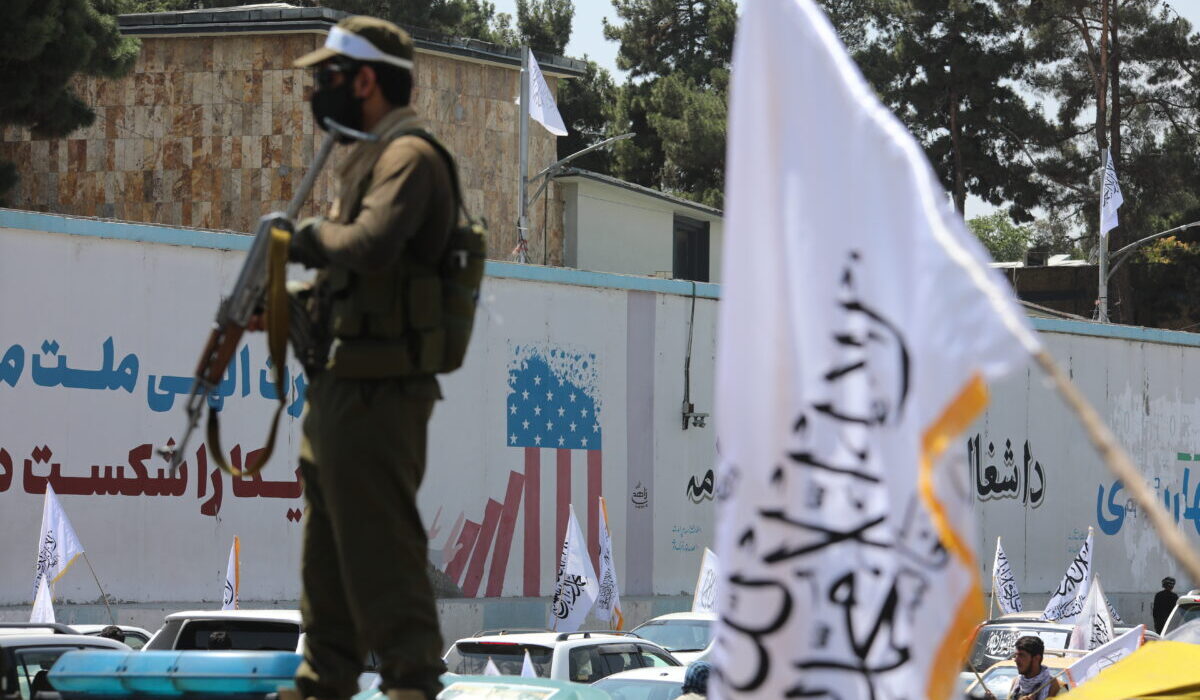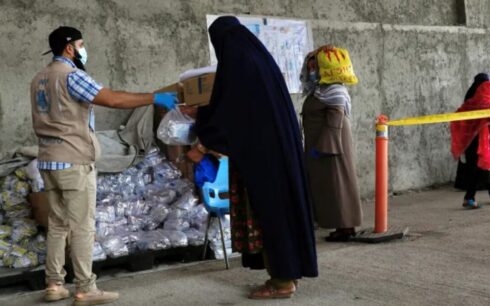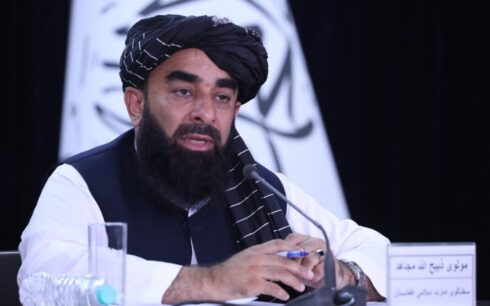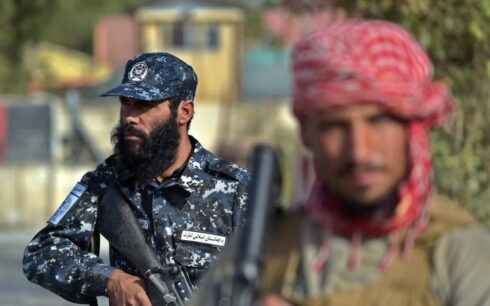The Taliban continued to host al Qaeda and provided safe haven to Tehrik-e-Taliban Pakistan (TTP) members, the U.S. State Department’s Country Reports on Terrorism 2023 says. The report also says that ISIS-K remained present in Afghanistan in 2023.
“The Taliban continued to host and shelter members of al-Qa’ida, claiming these individuals are not actively engaging in terrorism,” the report says. “According to the Independent Assessment of Afghanistan by the UN pursuant to resolution 2679 (2023), the Taliban also enabled members of Tehrik-e-Taliban Pakistan (TTP), who are active on Afghan soil. TTP members travel between Afghanistan and Pakistan and conduct attacks.”
Within the Taliban, there are internal divisions over how to address TTP as a group, the report says.
“Throughout 2023 the Taliban continued its pursuit of and operations against ISIS-K, which it still views as its primary threat. The year was marked by more reports of the Taliban stating they thwarted potential terrorist attacks, leading to an overall reduction of terrorism-based attacks,” the report added.
According to the report, the Taliban publicly and in private discussions with the United States reiterated its counterterrorism commitment under the 2020 U.S.-Taliban Agreement (the “Doha Agreement”). However, al-Qaeda, ISIS-K, TTP, and other terrorist groups remained present in Afghanistan, the report added.
In April, Tajikistan security forces reportedly discovered and neutralized an Afghan-origin terrorist cell that had crossed into Tajikistan territory with the intent to conduct attacks, the report said. ISIS-K also conducted attacks on civilians in Afghanistan territory, continuing its campaign against ethnic and religious minorities, the report says.
The report says that the United Nations recorded a significant decrease—72 percent—in the use of improvised explosive devices (IEDs) compared to 2022, but the threat to ethnic and religious minorities persisted. ISIS-K, in particular, conducted attacks on civilians, Taliban officials, and minority communities.
Key incidents and operations
Several high-profile terrorist incidents marked 2023:
March 12: ISIS-K detonated a bomb at a Shia gathering in Mazar-e Sharif, killing a journalist and injuring eight others.
May 26: An IED attack in Baghlan province targeted a security vehicle, killing one civilian and wounding 19, including Taliban personnel.
June 6: ISIS-K claimed responsibility for a suicide attack that killed the deputy provincial governor of Badakhshan province.
July 28: Taliban-linked fighters allegedly opened fire on Shia Hazara worshipers during Ashura in Ghazni City, resulting in multiple casualties.
August 21: An IED near the Ministry of Justice in Kabul, claimed by ISIS-K, killed two civilians and wounded two more.
The Taliban publicized operations targeting ISIS-K, claiming to have detained or killed numerous members and dismantled terrorist cells. However, opposition groups accused the Taliban of using counterterrorism as a pretext to suppress political dissent.
Regional implications
The report also emphasized Afghanistan’s role in broader regional instability. In April, Tajikistan reported intercepting an Afghan-origin terrorist cell planning cross-border attacks. Meanwhile, Iran lauded the Taliban for assisting in counterterrorism efforts related to attacks in Mashhad. Still, these cooperative efforts remain under scrutiny for their effectiveness and consistency.
The United States has not recognized the Taliban as the legitimate government of Afghanistan. Despite the group’s stated commitments under the 2020 Doha Agreement, its continued association with extremist organizations raises questions about its adherence to counterterrorism pledges.
The report paints a complex picture of Afghanistan’s security landscape, with the Taliban asserting its authority while providing a sanctuary for groups that pose a threat to regional and international stability.
Legislation, law enforcement and border security
The report says that there have been no changes to CT legislation since 2022.
According to the report, the Taliban on several occasions publicly announced that they had detained or killed ISIS-K members, including those responsible for terrorist attacks. Afghan political opposition groups publicly stated that these operations were aimed at targeting their members to quell political dissent.
According to ACLED, these Taliban actions were conducted by police, military, and intelligence forces affiliated with the Taliban, the report says.
The Taliban reported disrupting ISIS-K attacks, diffusing ISIS-K explosives, and disbanding or detaining ISIS-K terrorist cells, the report says. According to the report, UNAMA and media reports indicated the TTP launched significant attacks after crossing Afghanistan’s southeastern border into Pakistan. UNAMA reported that TTP members moved freely around the Afghan-Pakistan border area fully armed and brandishing weapons in front of Pakistan border forces. In April, Tajikistan reported the capture of an Afghan-origin terrorist cell within its borders.





